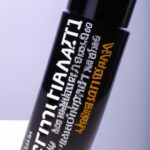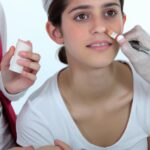Luxury Cosmetics Production is heavily reliant on delivering high-quality and safe products to consumers. To ensure that a skin or hair care product is safe and effective, companies often conduct Human Clinical Studies. These studies are designed to assess how a product interacts with an individual and evaluate the effects it has on different types of skin or hair.
At a Glance
Human Clinical Studies for cosmetics is an essential part of luxury cosmetics production and involves testing a product on a group of people to evaluate its safety and effectiveness.
The volunteers in the study are usually people with the same type of skin or hair that the product is intended for.
These studies include both subjective and objective measures of performance and safety, as well as observational data and self-reporting.
Human Clinical Studies for Cosmetics can provide manufacturers with valuable insights about their products, such as how well a product performs on certain skin types, what side effects are associated with it, and how safe it is.
Why Human Clinical Studies for Cosmetics Are Necessary
Before a skin or hair care product can make it to the market, companies must ensure that it is safe to use and meets the efficacy claims it is marketed with. This means that the company has to undertake rigorous testing of the product, including Human Clinical Studies for cosmetics, which are necessary for any product for which the safety or efficacy must be evaluated.
These studies are designed to assess the safety and efficacy of the product on a group of people, usually of the same type of skin or hair as the product is intended for. This helps to ensure that the product is safe to use and that it performs as intended, as well as providing information on any potential side effects associated with its use.
Human Clinical Studies for Cosmetics provide an objective way of evaluating a product, as it is not possible to gauge a product’s performance by simply assessing it in the lab. By testing the product on a group of people, manufactures can gain a better understanding of how it works and what results can be expected from its use.
Subjective and Objective Measures
Human Clinical Studies for cosmetics involve both subjective and objective measures to evaluate the product’s effectiveness and safety. Subjective measures such as self-reporting typically involve the volunteers providing input on how the product feels on their skin or scalp, and how satisfied they are with the results.
Objective measures involve direct observation and examination of the volunteers’ skin or hair. This could be measuring the skin’s moisture levels, for example, or assessing the hair’s growth and thickness.
These evaluations are often performed multiple times throughout the study to determine any changes in safety and efficacy of the product over time.
Testimonials and Validation
The success rate of a cosmetic product is often hugely dependent on what customers have to say about it. Positive reviews and recommendations can help to increase sales and build trust in the brand.
Human Clinical Studies for cosmetics provide manufacturers with the validation they need to be confident in the product’s safety and performance. Testimonials from the volunteers in the studies can be used to back up the product’s claims in marketing materials and advertising campaigns. This not only helps to strengthen the product’s appeal, but also to provide reassurance to customers that the product is safe and effective.
FAQs
Q: How does Human Clinical Studies for cosmetics work?
A: Human Clinical Studies for cosmetics involve testing a product on a group of people with the same type of skin or hair that the product is intended for. These studies involve both subjective and objective measures of performance and safety, as well as observational data and self-reporting.
Q: What are the benefits of Human Clinical Studies for cosmetics?
A: Human Clinical Studies for cosmetics can provide manufacturers with valuable insights about their products, such as how well a product performs on certain skin types, what side effects are associated with it, and how safe it is. These studies also provide manufacturers with the validation they need to be confident in the product’s safety and performance, as well as helping to build trust in the brand.
Q: Are Human Clinical Studies for cosmetics necessary?
A: Yes, Human Clinical Studies for cosmetics are an essential part of luxury cosmetics production. Before a skin or hair care product can make it to the market, companies must ensure that it is safe to use and that it meets all efficacy claims. Testing the product on a group of people is the best way to do this and is therefore necessary for any product that requires evaluation of its safety or efficacy.
Unlocking the Potential: The Role of Human Clinical Studies in Cosmetics Innovation
In the realm of luxury cosmetics production, delivering high-quality and safe products to consumers is paramount. To achieve this, companies often turn to Human Clinical Studies, an integral part of the development process. These studies involve testing a product on a group of individuals with the same skin or hair type that the product is intended for, aiming to evaluate its safety, effectiveness, and overall performance.
The Power of Human Clinical Studies
Human Clinical Studies for cosmetics yield valuable insights for manufacturers, enabling them to optimize their products and meet the diverse needs of consumers. By conducting these studies, companies can determine how well a product performs on specific skin types, identify potential side effects, and assess its overall safety. These crucial findings empower manufacturers to refine their formulations, ensuring that their products meet the highest standards of quality and efficacy.
Subjective and Objective Measures: A Holistic Approach
A comprehensive understanding of a cosmetic product’s performance and safety necessitates the incorporation of both subjective and objective measures during Human Clinical Studies. Subjective assessments, including self-reporting by volunteers, provide valuable firsthand insights into how the product feels on the skin or scalp and the level of satisfaction experienced by the participants.
Objective measures, on the other hand, involve direct observation and examination of the volunteers’ skin or hair. These assessments encompass a wide range of parameters, such as measuring skin moisture levels or evaluating hair growth and thickness. By employing this multifaceted approach, manufacturers gain a comprehensive understanding of their products’ impact and effectiveness, further informing their development decisions.
Unleashing the Potential: Testimonials and Validation
The success of a cosmetic product is often intertwined with customer feedback and testimonials. Positive reviews and recommendations not only boost sales but also foster trust in the brand. Human Clinical Studies play a pivotal role in providing the validation necessary to instill confidence in the product’s safety and performance.
Testimonials from the volunteers who participate in these studies serve as powerful endorsements for the product. Manufacturers can leverage these testimonials to support their marketing claims and bolster their advertising campaigns. By doing so, they enhance the product’s appeal, while simultaneously reassuring customers of its safety and efficacy.
Embracing Progress: Why Human Clinical Studies Are Essential
Human Clinical Studies for cosmetics are not merely an option; they are a vital requirement in luxury cosmetics production. Before a skin or hair care product can be introduced to the market, rigorous testing, including these studies, is crucial to ensure its safety and efficacy. By evaluating the product on a group of individuals with the intended skin or hair type, manufacturers can gather robust data and make informed decisions regarding their formulations.
The significance of Human Clinical Studies lies in their ability to provide a comprehensive evaluation of a product’s performance, safety, and effectiveness. Through these studies, manufacturers can uncover the full potential of their cosmetics, refine their formulations, and deliver products that exceed consumer expectations.
FAQs: Shedding Light on Human Clinical Studies for Cosmetics
To further clarify the role and significance of Human Clinical Studies for cosmetics, let’s address some frequently asked questions:
Q: How do Human Clinical Studies for cosmetics work?
A: Human Clinical Studies for cosmetics involve testing a product on a group of people with the same skin or hair type that the product is intended for. These studies encompass both subjective and objective measures of performance and safety, alongside observational data and self-reporting.
Q: What are the benefits of Human Clinical Studies for cosmetics?
A: Human Clinical Studies for cosmetics provide manufacturers with valuable insights, including product performance on specific skin types, associated side effects, and overall safety. Additionally, these studies offer manufacturers the validation necessary to instill confidence in their products’ safety and performance, while simultaneously building trust in their brand.
Q:
Are Human Clinical Studies for cosmetics necessary?
A: Absolutely. Human Clinical Studies are an indispensable component of luxury cosmetics production. They are essential to ensure the safety and efficacy of skin or hair care products before they reach the market. Evaluating a product on a group of individuals with the intended skin or hair type is the most effective way to achieve this, making these studies necessary for any product requiring evaluation of its safety or efficacy.
By embracing the insights gained from Human Clinical Studies, manufacturers can unlock the potential of their cosmetic creations, fostering innovation, trust, and consumer satisfaction.






